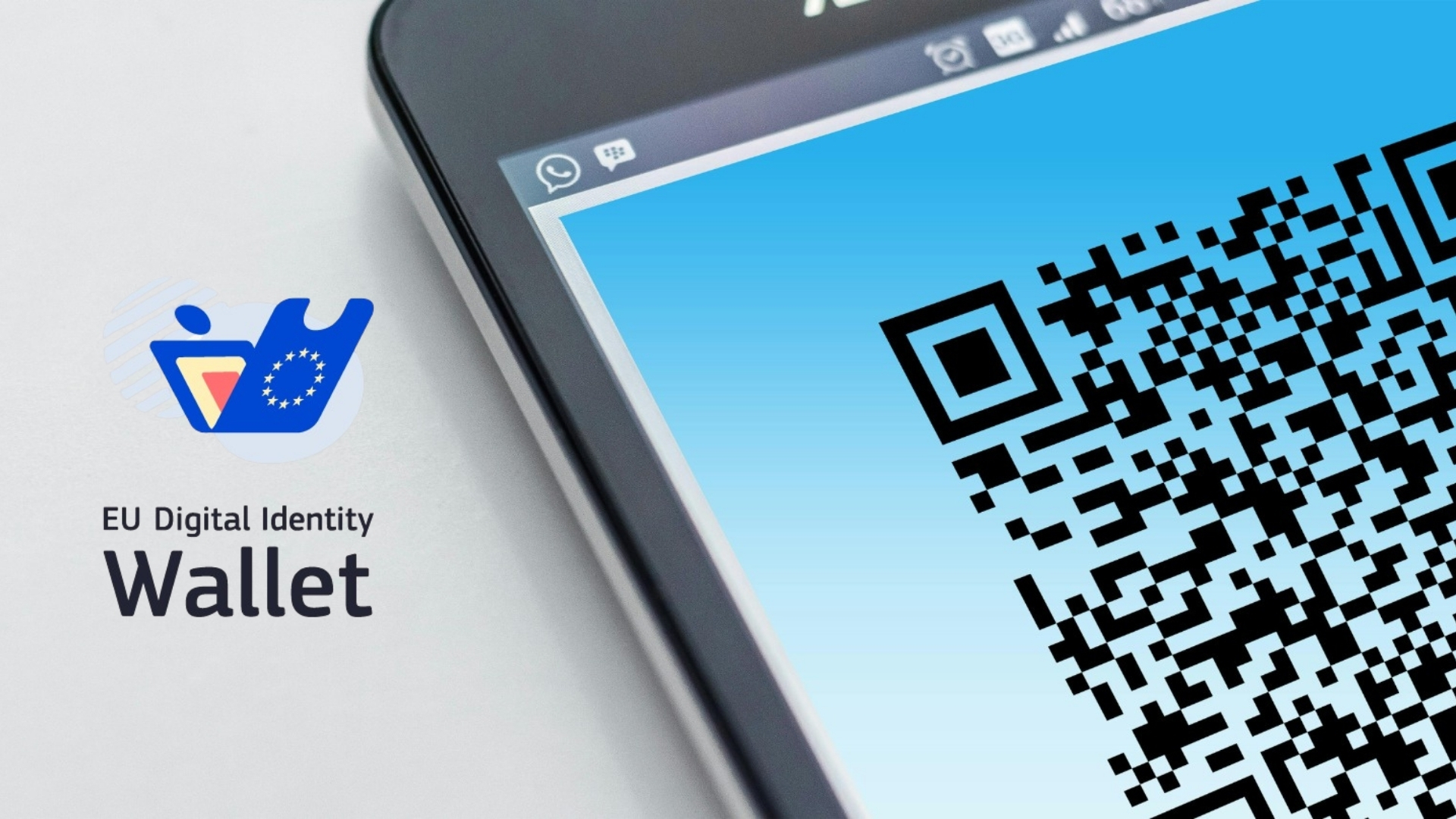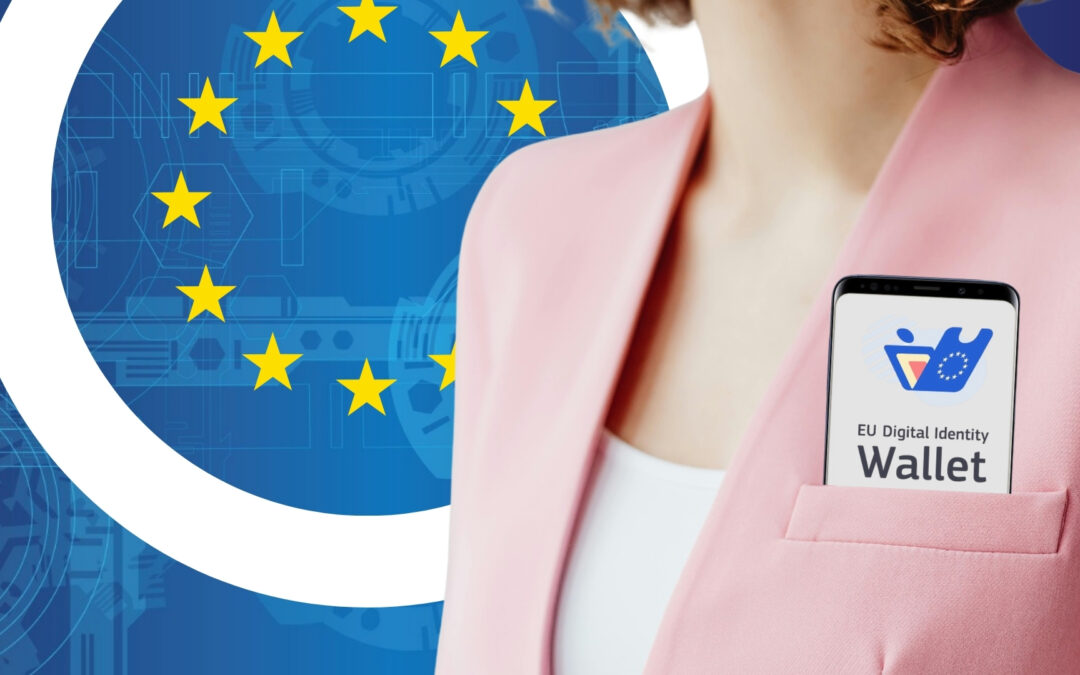The European digital identity wallets (EUDIW) will be available soon providing several key features:
- Proof of identity: EUDIW stores personal identification data (PID), that is similar to a digital identity card. Instead of carrying your ID card in your physical wallet you can securely prove your identity with the mobile phone, both on-line and for physical interaction. Moreover, you can disclose only parts of your identity information, i.e that you are over 18.
- Presentation of attributes of a person: EUDIW can store information such as mobile driving license, diplomas or the proof that you are student, health card, social security information, professional certification, membership or loyalty cards, etc. These attributes complement the identity of an individual and provide information regarding what that person is entitled to do.
- Authentication to on-line services: secure login to public and private services.
- Qualified electronic signature: Legally binding digital signatures for contracts and official documents. [1]
Timeline for implementation
EUDIW shall be available by December 2026 to all the citizens of the European Union, while each of them is free to decide if and how to use the wallet. Public administration shall be prepared by that time to allow the usage of EUDIW in the services it provides.
Private sector, from areas such as transport, energy, banking, financial services, social security, health, drinking water, postal services, digital infrastructure, education or telecommunications shall accept the usage of EUDIW by December 2027. Very large online platforms shall also use the European digital identity wallet.
AML Regulation (Regulation (EU) 2024/1624 on the prevention of the use of the financial system for the purposes of money laundering or terrorist financing) requires compliance with eIDAS Regulation earlier, before July 2027 for:
- Secure remote or electronic identification and verification of prospective and existing customers.
- Facilitate the remote performance of customer due diligence.
- Use the identification solutions as set out in Regulation (EU) No. 910/2014.

How to use the EUDIW today
Public and private organizations shall adopt the EUDIW and comply with the requirements of eIDAS Regulation.
Usually, they may have two possible roles:
- Authentic sources: provide attributes about a person and are considered a primary source of that information, i.e. a bank provides an IBAN or a University proves that a person is a student. Authentic sources deliver information to EUDIW using a trusted intermediary, such as a Qualified Electronic Attestation of Attributes Provider (QEEA) or a Public Electronic Attestation of Attributes Provider (Pub-EAA).
- Relying parties: consume the personal identification data and identity attributes from the wallets, allow the citizens to use EUDIW to authenticate to their services and request qualified electronic signatures.
Both authentic sources and relying parties communicate with the wallet to write and read information. In different scenarios the same entity can be either an authentic source or a relying party:
- A bank is a relying party when it uses the PID to perform client onboarding and KYC (Know Your Customer) process, and an authentic source when it provides the IBAN to the EUDIW.
- Similarly, a University is a relying party when it receives information about the identity or the previous studies of a student, and an authentic source when it provides information about exams or degrees to the wallet.
European Union launched Large Scale Pilot projects (LSPs) to help organizations familiarized with EUDIW. Although including hundreds of organizations, the LSPs are allowing only a fraction of the entities adopting the wallet to be in contact with the ecosystem.
Many other organizations shall prepare to adopt EUDIW. Typically, this is a two parts approach:
- Technical: use an EUDIW mobile application, prepare the systems to communicate with it and create proof of concept use cases to issue and receive identity attributes.
- Guidance: this is required to familiarize with the EUDIW ecosystem, the technical and legal requirements and prepare for production ready implementation.
Test Before Investing
certSIGN is a technology provider. Using its experience from European Large Scale Pilots, presence in the working groups of standardization organizations involved in the development of EUDIW ecosystem, such as ETSI and Cloud Signature Consortium, and its expertise in providing Qualified Trust Services it created demo environments, allowing organizations to test now the complete features of the EUDIW ecosystem [2].
It is already running Proof of Concept projects, and demonstrates use cases such as:
- For banks and financial sector: bank account opening, including KYC, and loan application.
- For Universities: student onboarding, on-line authentication, physical access to campus facilities
The demo environments include several instances for EUDIW wallet (mobile applications), emulate the PID provider, the QEAA Provider, the Qualified Electronic Signature Provider and provides APIs for the communication with authentic sources and relying parties. It is built with production ready technology that can be customized to accommodate use cases from various industries and help them reduce the complexity and costs of compliance with eIDAS Regulation and EUDIW adoption requirements.
[1] certSIGN. Semnătura electronică calificată. https://www.certsign.ro/ro/semnatura-electronica-calificata-solutia-pentru-o-digitalizare-simpla-si-sigura/
[2] certSIGN [2025]. Portofel identitate digitală. https://www.certsign.ro/ro/produse/identitate-digitala/portofel-identitate-digitala/





























